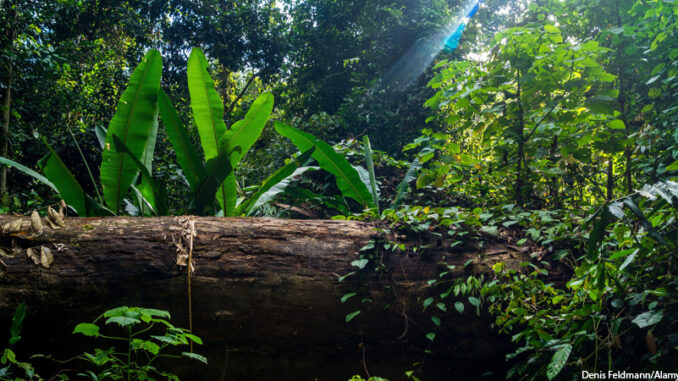
Russia and Britain Dispute Black Sea Encounter
A few weeks ago, a tense moment occurred in the Black Sea when a high-tech British destroyer ship named the HMS Defender passed through the area. But here’s where the story differs–depending on who is telling it.
According to Russia, who claims control over the region, the HMS Defender had violated the border of their territory. The Russian Defense Ministry stated that a Russian ship fired warning shots at the ship, while a warplane dropped four bombs in its path. News reports of the event said that Russia had successfully driven the hostile ship out of their waters.
But the British Defense Ministry tells a different story. According to it, no shots were fired, and no bombs were dropped. The Ministry also says that the territory the ship passed through belongs to Ukraine and that international law allows its passage. Any shots fired were from a Russian military exercise and were not aimed at the British ship. The ship was also accompanied by Russian vessels during its passage, which is standard procedure.
This water route between Ukraine and the Republic of Georgia is territory that Russia has invaded and considers to be its own. But Ukraine and Georgia disagree. Ever since Russia took over part of Ukraine called the Crimean Peninsula, Ukraine has been heavily reliant on Western military aid for support. Meanwhile, Russia claims that NATO countries such as the United States and Britain regularly try to provoke Russia by entering its territory in the Black Sea.
Dig Deeper To better understand this story, print or draw a map of the Baltic region, and identify and label the following locations: the Black Sea; Ukraine; Crimean peninsula; Republic of Georgia.
Gabon Receives Payout for Protected Rainforest
Rainforests host the majority of the world’s plant and animal species. Rainforests also produce oxygen and absorb damaging greenhouse gases from the atmosphere. Yet rainforests are also shrinking at an alarming rate. The Central African Forest Initiative (CAFI) helps combat this issue. CAFI is a United Nations-supported program that pays African nations to preserve their forests. This financial motivation is important because rainforests are usually cut down for their lumber, or to make way for farmlands to grow more profitable cash crops. Gabon has become the first African nation to receive a payment for reducing carbon emissions by protecting its rainforest.
Eighty-eight percent of Gabon is covered by forest, which is home to about 60 percent of Africa’s forest elephant population. The country’s old-growth rainforest also absorbs more carbon than Amazon rainforests do. Over the past few years, Gabon has developed programs and policies to protect its forests. Gabon has created 13 national parks and is fighting against illegal logging. As a result, the country will be receiving $150 million from CAFI. So far, $17 million has already been paid to Gabon, based on a formula that calculates how many tons of carbon have been removed from the atmosphere because of preserving the forests.
However, many international conservation groups are unhappy with this decision. Data from the Global Forest Watch shows that while Gabon has experienced less deforestation than it did a decade earlier, its forest loss actually increased in 2016 and 2017. That’s because the government has encouraged development of the palm oil industry to move its economy away from oil. Palm oil requires deforestation to make way for palm trees.
What Do You Think? Gabon’s amount of deforestation is lower now than it was a decade ago, but the rate of deforestation sped up in 2016 and 2017. If you were a member of CAFI, would you support giving Gabon a financial reward for protecting its rainforests? Why or why not?
Too Many Thin Mints
This year, the Girl Scouts is facing an unusual problem. It has 15 million unsold boxes of cookies.
So what happened? Several factors are to blame. First, the COVID-19 pandemic put a huge dent in sales. Traditionally, Girl Scout cookies are sold almost entirely in person, door to door or at cookie booths. But the pandemic made that next to impossible. Troops came up with innovative solutions–such as drive-through booths, online sales programs, and partnerships with delivery services such as Grubhub. But it wasn’t enough to make up the difference.
Other issues affected sales as well. Membership in Girl Scouts has been dipping steadily in recent years, which impacts cookie sales because there are fewer girls to sell them. Also, an article came out 6 months ago that alerted Americans to the use of palm oil in Girl Scout cookies. Palm oil is controversial because rainforests are destroyed to grow the palm trees that produce it. Moreover, in many places, child labor is used to harvest the palm oil. These children are exposed to dangerous and toxic conditions, often for little or no pay. Some Girl Scout troops responded to this news by boycotting their cookie sales altogether.
Girl Scout cookies only last on the shelf for about a year, so the unsold boxes from this year can’t be re-sold next year. Instead, the Girl Scouts is trying to donate as many boxes as it can to food banks, shelters, and the military. The loss of revenue has a direct impact on local Girl Scout councils, which use the money from cookie sales to fund camps, trainings, staff salaries, scholarships, and activities.
